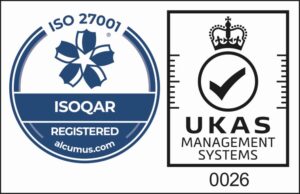IT MSPs and Data Analytics: Unlocking Insights for Business Growth
In today’s data-driven world, businesses are accumulating vast amounts of information from various sources. However, data alone is not enough to drive growth and competitive advantage. To gain actionable insights, businesses need to harness the power of data analytics. This is where IT Managed Service Providers (MSPs) play a vital role. MSPs specialize in data analytics, helping businesses unlock the value of their data and drive growth through informed decision-making. Let’s explore the role of IT MSPs in data analytics and how they unlock insights for business growth:
Data Analytics Strategy Development
MSPs collaborate with businesses to develop a data analytics strategy that aligns with their goals and objectives. They help define key performance indicators (KPIs) and metrics that reflect business priorities. MSPs ensure that the data analytics strategy focuses on extracting actionable insights to drive growth and innovation.
Data Collection and Integration
MSPs assist businesses in collecting data from various sources, including internal systems, customer interactions, social media, and IoT devices. They ensure that data is integrated, cleaned, and prepared for analysis, reducing the risk of inaccurate or incomplete insights.
Advanced Analytics and Machine Learning
MSPs deploy advanced analytics techniques, such as predictive modeling and machine learning, to uncover patterns and trends in the data. Machine learning algorithms help businesses identify opportunities, predict customer behavior, and optimize operations.
Business Intelligence and Data Visualization
MSPs provide business intelligence solutions that transform raw data into interactive and visual dashboards. Data visualization tools allow businesses to explore and understand data intuitively, enabling quick and data-driven decision-making.
Customer Analytics
MSPs assist businesses in understanding their customers better through customer analytics. By analyzing customer data and behaviors, businesses can identify customer preferences, pain points, and opportunities for personalized marketing and customer experience improvements.
Operational Efficiency Optimization
Data analytics enables MSPs to identify areas of inefficiency within an organization’s processes. By analyzing operational data, MSPs can suggest process improvements, resource optimizations, and cost-saving measures.
Market and Competitive Analysis
MSPs help businesses gain a competitive edge by providing insights from market and competitive analysis. Data analytics can reveal market trends, customer sentiments, and competitor strategies, allowing businesses to make informed decisions.
Fraud Detection and Security Analytics
MSPs employ data analytics to detect anomalies and potential security threats in real-time. By analyzing network logs, user behaviors, and transaction patterns, MSPs enhance security measures and safeguard against cyber threats.
Data-Driven Marketing and Sales
MSPs enable businesses to leverage data analytics for targeted marketing and sales efforts. By analyzing customer data and interactions, businesses can personalize marketing campaigns, improve lead generation, and increase sales conversion rates.
Continuous Improvement and Iteration
MSPs support businesses in establishing a data-driven culture where data analytics is continually used to improve processes and strategies. They help businesses iterate and refine their data analytics approach to ensure sustained growth.
By partnering with IT MSPs for data analytics, businesses can transform their data into actionable insights that drive growth and competitiveness. MSPs bring specialized expertise in data analytics tools, methodologies, and best practices, allowing businesses to gain a competitive advantage through informed decision-making. With the power of data analytics at their fingertips, organizations can unlock the full potential of their data and thrive in an increasingly data-centric business environment.




